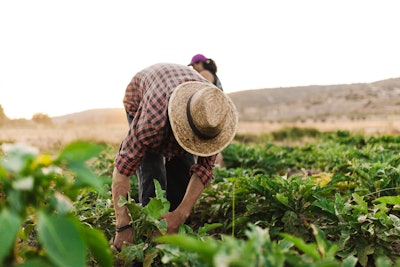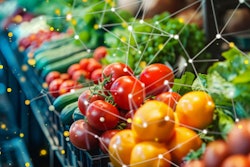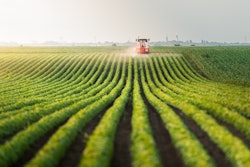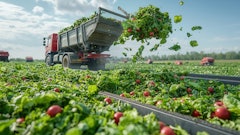
As President-elect Trump prepares to take office, his pledge to intensify enforcement against undocumented immigrants raises significant concerns for industries reliant on immigrant labor. The U.S. agricultural sector, which depends heavily on undocumented workers for labor-intensive tasks, is particularly vulnerable to sudden disruptions. Drawing lessons from the UK’s post-Brexit labor crisis, it becomes clear that such enforcement could have cascading consequences, including economic losses, food waste, and supply chain instability.
Undocumented laborers: A crucial workforce
Undocumented workers play an essential role in U.S. agriculture, accounting for nearly half of the sector’s workforce. They fill roles that are often seasonal, physically demanding, and poorly compensated jobs that domestic workers have historically been unwilling to take. Without them, the agricultural industry faces an immediate labor shortage that could lead to widespread disruption.
The reliance on undocumented workers has long been an open secret, with a delicate balance between labor needs and enforcement of immigration laws. A sudden crackdown could shift this balance, leaving farms understaffed and unprepared to manage critical tasks like planting, harvesting, and processing.
Lessons from Brexit: A cautionary tale
The UK’s post-Brexit experience offers a stark warning. After losing access to EU migrant labor, the British agricultural sector struggled to cope with significant labor shortages. Crops such as daffodils, cucumbers, and strawberries were left unharvested, leading to substantial financial losses for farmers and a spike in food waste. According to a 2021 UK Parliament report, 24% of the nation’s daffodil crop went unpicked, and individual farms reported losses exceeding $640,000 due to insufficient labor.
Efforts to recruit domestic workers, such as the "Pick for Britain" campaign, largely failed. Low wages, difficult conditions, and the seasonal nature of the work made these roles unattractive. This left British farmers unable to meet contractual obligations, triggering supply chain disputes and economic instability. Similar outcomes are likely if undocumented agricultural workers in the U.S. are suddenly removed from the workforce.
Seasonal impacts of a January crackdown
If a strict immigration crackdown begins in January when Trump takes office, the timing could exacerbate the consequences. Winter is a critical season for agricultural operations in warmer states like California, Florida, and Texas, where citrus fruits and winter vegetables are actively harvested. Labor shortages during this period could leave crops overripe and unharvested, leading to food waste and lost revenue.
Additionally, January is when many farms prepare for spring planting. Crops like strawberries and onions, which require planting during late winter, could face reduced land area or delays. Anticipating a lack of available labor, some farmers may opt not to plant labor-intensive crops, reducing overall production and crop diversity for the upcoming season.
Cascading consequences across the supply chain
The impact of labor shortages would ripple across the agricultural supply chain. In the short term, reduced production would lead to higher food prices and increased reliance on imports. Farmers and food producers may also face difficulties meeting contractual obligations, potentially leading to disputes with distributors and retailers.
In the longer term, these disruptions could undermine consumer confidence in the reliability of the food supply. Farmers and food manufacturers may need to renegotiate contracts to account for unpredictable labor conditions, creating additional administrative and legal complexities.
What we can learn
The Brexit example demonstrates the far-reaching consequences of abrupt labor shortages. Beyond the immediate economic impact, British farmers faced operational challenges, supply chain disruptions, and reputational damage. U.S. stakeholders, including farmers, food manufacturers, and policymakers, can take proactive steps to mitigate similar risks.
· Invest in contingency planning. Diversify labor sources and explore automation technologies where feasible. These measures can reduce reliance on manual labor and provide greater resilience against workforce disruptions. This might however require upfront investment or higher costs for example if we want to attract domestic workers with higher wages.
· Strengthen local supply chains. Build stronger partnerships with domestic farms and distributors to ensure supply chain continuity, even during periods of instability.
· Review contracts and obligations. Anticipate potential disputes by reviewing existing agreements and renegotiating terms to account for labor shortages.
Conclusion
The U.S. agricultural sector’s reliance on undocumented immigrant labor is both a strength and a vulnerability. A strict crackdown on this workforce could lead to cascading consequences, including reduced agricultural output, increased costs, heightened food waste, and strained supply chains. Lessons from the UK’s Brexit-related labor shortages underscore the risks of sudden policy shifts, particularly for industries as labor-dependent as agriculture.
The timing of enforcement actions, particularly in critical months like January, could further amplify these challenges, impacting planting, harvesting, and the availability of fresh produce. Addressing these vulnerabilities requires collaboration across the supply chain, with all stakeholders working together to ensure the resilience of the U.S. food system. By applying lessons from past crises and preparing for future uncertainties, the agricultural sector can mitigate risks and maintain stability in the face of change.

















